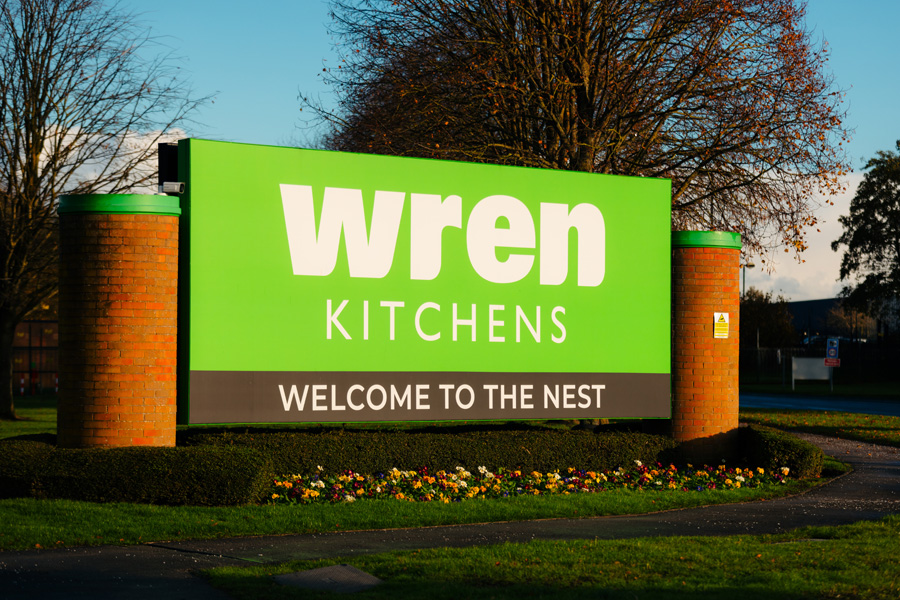The UK Green Building Council (UKGBC), the voice of over 700 organisations working together for a more sustainable built environment, has welcomed the Chancellor’s Autumn Statement.
Simon McWhirter, UKGBC’s Director of Communications, Policy and Places, said he hoped the announcements could signal the most important boost to energy saving and reduced energy bills in many years.
The shift to make energy saving an equal priority with energy supply, setting a clear level of ambition and path forwards for industry, and new government funding could be the turning point needed.
“Getting the details and wider strategy right will be critical; but this is progress in the right direction,” he explained. “The new task force to advise Government is welcome news. Bringing in experience from across industry, academia and civil society will be essential to make this a success, and learn from the mistakes of the past.
“The plan now needs to reflect the required urgency of the fuel poverty, cost of living and climate emergencies. Public funds must be prioritised for households struggling with bills, and boosting local authorities’ capacity to play centre stage in helping drive energy savings across the country. To succeed in a ‘shared mission with families and business’, targeting a whole-nation approach, more funding will be needed – as well as complementary long term policies including incentives for owner occupiers and stronger minimum standards for the private rented and commercial sectors.
“The size of the prize is enormous, in terms of new and secure skilled jobs, accelerating levelling up across the country and scaling up the green economy.”

RIBA President, Simon Allford also praised the Chancellor’s clear statement that improving the energy efficiency of buildings was a priority.
“The extra funding is welcome, he said. “But, to meet the scale of the challenge, and for people and our economy to benefit from the relief, it needs to be accelerated.
“Improving the energy efficiency of our buildings will reduce bills, create jobs and improve the health and well-being of those who live in and use them.
“The taskforce announced today to oversee these vital changes must learn from past failures and build a competent, skilled supply chain. As an institute and profession, we will continue to engage with, and wherever possible support the government, as it drives forward the vital programmes of work to retrofit our building stock. Time is of the essence."
Eddie Tuttle, Director of Policy, External Affairs and Research at the Chartered Institute of Building, said although the cost of living and energy crisis are rightly priorities for Government, the role of the construction industry in addressing both of them is being underestimated and this has been evident in the Autumn Statement.
“Representatives from the built environment must be included in the Taskforce the Chancellor has announced if any plans to meet energy efficiency targets are to be successful, and we would welcome the opportunity to share our expertise,” he said.
“The built environment sector is without doubt, pivotal in reducing carbon emissions, not only during the construction of new buildings and critical infrastructure, but also in the retrofitting of existing homes to make them more energy efficient. Without this, government will not meet its target of reducing the carbon emissions from buildings by 15 per cent by 2030 and reduce household energy bills, which continue to be one of the biggest concerns for the UK population.
“Continuing investment and forward planning from a stable government is critical to enable the construction sector to properly plan ahead with confidence and play its part in addressing net zero, levelling up and ultimately the cost of living and energy issues faced by millions.”
The Government has announced a new commitment of more than £6 billion from 2025 to extend energy efficiency retrofit programmes, to cut energy use of buildings by 15 per cent by 2030, with a new Energy Efficiency Taskforce to drive this. It also reinforced its commitments to carbon reduction made at last year’s COP26 climate conference in Glasgow.
Construction Leadership Council Co-Chair Mark Reynolds said: “We fully support the Government’s ambition to improve energy efficiency of buildings nationwide, while slashing carbon emissions. The CLC will give our fullest possible support to the Energy Efficiency Taskforce, ensuring that this work can be delivered as quickly and affordably as possible.”
The Chancellor also confirmed his support for the construction of a new nuclear power station at Sizewell C in Suffolk, and committed to protect expenditure on capital projects for the coming two years including HS2, East West Rail, and the New Hospital Programme.
Mr Reynolds added: “One of our key asks going into today’s Autumn Statement was to avoid cuts to existing programmes of work that are providing jobs and growth across the country. We welcome the Chancellor’s continuing commitment to major investment in our social and transport infrastructure.”
Noting the Government’s strategy for growth, build around themes of energy, infrastructure and innovation, the CLC recognises that UK construction will have a central role as an engine for this growth. Mr Reynolds said: “The Government has responded to the key issues raised by industry. Our role now is to work together to drive the productivity gains and efficiencies that will underpin future economic success. Better construction productivity and better built assets will drive growth and improve productivity across the economy and public sector.
“With the wider economy facing steep increases in unemployment over the coming years, we have the opportunity to make construction an employer of first choice, offering higher salaries than almost any sector outside financial services and a committed programme of work.”
Gillian Charlesworth, CEO at BRE, pointed out that the UK has one of the oldest and draughtiest building stocks in Europe – a fact which unnecessarily inflates demand for natural gas and, consequently, leads to higher bills.
“As households and businesses grapple with soaring energy bills and rising costs, reducing demand for natural gas will be the only effective way of bringing bills down over the long-term and addressing the increasingly apparent climate emergency,” she continued.
“By decarbonising our building stock, we can tackle the energy and climate crises head-on, shielding consumers and businesses from future volatility in gas prices and bolstering the efficiency of our buildings.
“We look forward to seeing further detail on the Government’s energy independence plans and the Energy Efficiency Taskforce that will deliver these.
“Ultimately, maintaining funding for the UK’s net zero commitments, including those related to the built environment, will ensure that momentum is not lost on Britain’s green transition and that households and the private and public sectors are not plunged into an even bleaker future.”
However, Mike Foster, CEO of the Energy and Utilities Alliance (EUA), said: “The Chancellor confirming the energy price cap will see a whopping increase up to £3,000 in April will inevitably worry millions of hard-pressed families. Our recent consumer survey found 78% of Brits support keeping the price cap on energy bills in place, so an increase that plunges millions into fuel poverty is not what any households wanted to see.
“This is particularly immoral while the Government’s own Boiler Upgrade Scheme, that is still in place, hands out £5000 subsidies to the well-off to change their heating, while millions struggle to pay their bills. They have missed an open goal to solving some of the energy bills turmoil plaguing the British public. Redistributing these millions of pounds in pointless heat pump subsidies into insulation, efficiency measures, and bills support is really a no brainer.”
“With news of renewed investment in nuclear, this budget also reinforces our view that longer-term we need to move away from fossil gas and switch our network over to hydrogen. Not only will this help to reduce emissions – which the Chancellor pointed out was a priority in his speech – this level of energy independence would also free us from the global gas markets that Putin’s war has significantly impacted.”




















